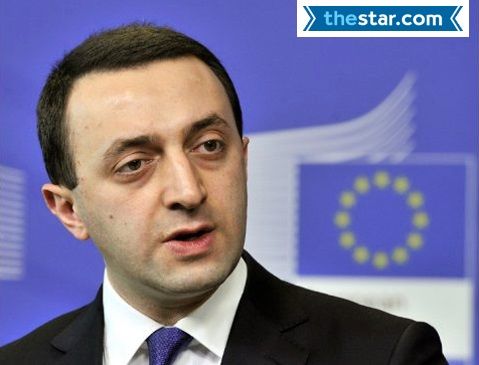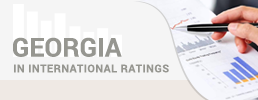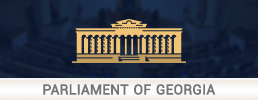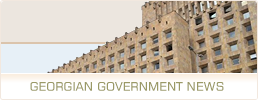14-03-09

Meet the young politician standing up to Vladimir Putin
By: Yochi Dreazen Foreign Policy magazine,
Published on Sun Mar 09 2014
WASHINGTON-When Irakli Garibashvili was a child, his native Georgia was just beginning to recover from decades as an impoverished Soviet satellite. Garibashvili's house had no electricity or gas, and he studied by candlelight.
The newly independent country - beset by chronic corruption, rampant civil instability and lingering economic malaise - wasn't doing much better.
Garibashvili is now Georgia's prime minister and, at 31, the youngest elected head of government in the world. His country, which gained its independence in 1991, was once firmly oriented east, toward its rulers in Moscow. Garibashvili hopes it will soon be just as firmly oriented west.
His government's primary focus, Garibashvili says, is developing closer economic and political ties with the European Union while laying the groundwork for eventually joining the North Atlantic Treaty Organization.
"I really want to transform my country into a real, modern, democratic, European state," he says, choosing his words carefully. "That's my dream."
Making that dream come true will require deftly finessing Tbilisi's relationship with Russia. With pro-western leaders in nearby Ukraine struggling to find their way out from under Russia's thumb - and its army - Georgia's successes and struggles offer both a road map and a cautionary tale for Kyiv.
Garibashvili is well aware of the risks of pushing Moscow too hard. Georgia's last president, Mikheil Saakashvili, took power in 2004 after the so-called "Rose Revolution" ousted Eduard Shevardnadze.
Immediately after the fall of the Soviet Union, Saakashvili began work to improve ties with the EU and the United States, angering Russia.
In 2008, Georgian troops fought a series of low-level skirmishes with separatist forces in the breakaway region of South Ossetia. Russia intervened on behalf of the rebels and pushed the Georgian forces out. Tbilisi and Moscow severed their diplomatic ties, and South Ossetia and Abkhazia have been under de facto Russian control ever since. That scenario may be repeating itself in Crimea.
Garibashvili hopes his country's increasing integration into Europe will gradually persuade the citizens of South Ossetia and Abkhazia that it is in their own interest to rejoin Georgia.
Tbilisi is slated to sign a so-called "association agreement" with the EU in August, bringing Georgia closer to full membership. Garibashvili predicts that within the next five years Georgian citizens will be able to travel through the EU without visas and that the country's economy will be rapidly expanding because of growing trade with Europe. Residents of the breakaway regions, he believes, will want those perks for themselves.
"They will see the difference in living standards," Garibashvili says. "They will see how they live in Abkhazia and Ossetia, and they will see how Georgians live."
That entire strategy depends on how effectively Garibashvili is able to realize his vision of Georgia as a regional business and economic hub. Speaking like the businessman he was before becoming a politician, Garibashvili boasts that his country offers political stability, a cheap labour force and a pro-business regulatory structure. He says he expects Georgia's economy to grow by at least 5 per cent in 2014.
Garibashvili is the first leader of a post-Soviet country who didn't grow up living under Soviet occupation, but he won't be the last.
Some of Ukraine's next leaders will probably be roughly the same age and will probably have grown up with roughly the same sets of experiences. Georgia is closer to Iran and Iraq than it is to Paris and London. If Garibashvili succeeds, his country will be part of the EU all the same. That accomplishment won't be lost on the young leaders gradually taking power across the former Eastern bloc.
"We want to be an example," Garibashvili says. "We want to show the way."










